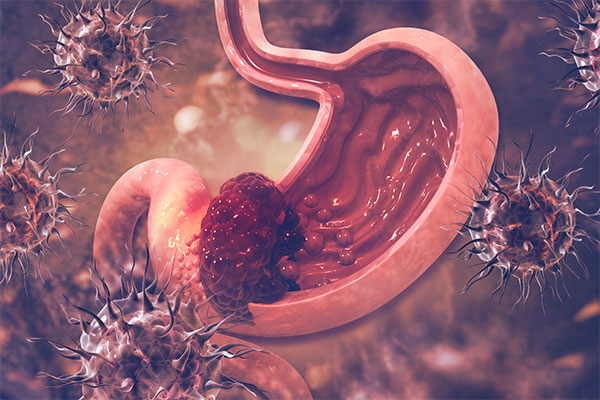Learn About Stomach Cancer

What Is Stomach Cancer?
Stomach cancer, also called gastric cancer, refers to the overgrowth of abnormal cells in any part of the stomach.
Causes and Risk Factors
The exact causes of stomach cancer are still unknown. But a few things that can raise the risk for the disease including atrophic gastritis, cancerous stomach polyps, and pernicious anaemia.
Medical studies find that the elderly are more likely to get cancer. Stomach cancer is more common in men than women. Family history is also one of the important factors. Other risk factors include smoking, alcohol consumption, eating foods preserved by salting or processed meat with an increase of the risk of non-cardia [i.e. fundus, body and pylorus] gastric cancer, and obesity with an increase of the risk of gastric cardia cancer.
Prevalence and Mortality
Stomach cancer was the sixth commonest cancer in Hong Kong in 2015. It accounted for 3.8% of all new cancer cases. According to the statistics of Centre for Health Protection (CHP), there were 1167 new cases of stomach cancer in 2015, with 686 cases of males and 481 cases of females. The male to female ratio was about 1.4 to 1. It was, moreover, the fourth leading cause of cancer deaths in Hong Kong. In 2016, it claimed 710 deaths, accounting for 5.0% of all cancer deaths.
Signs and Symptoms
Early stomach cancer may have no symptom and therefore often go undetected.. Cancers starting in different sections of the stomach may cause different symptoms. Common symptoms of stomach cancer include indigestion, upper abdominal pain, nausea, vomiting with blood-stained vomitus, loss of appetite, weight loss, and fatigue.
Diagnosis
At present, gastroscopy is the most common detection tool of stomach cancer. Gastroscopy involves a flexible endoscope which passes through the mouth of patients to the oesophagus, stomach and duodenum to examine if there is any inflammation, stomach polyps, peptic ulcer or tumour diseases. During the procedure, patients will receive intravenous sedation so they are asleep for the procedure and feel no pain. Biopsy will be performed during examination for laboratory tests when necessary.
What Makes Gastroscopy So Effective?
The gastroscopy provides a most direct way to look inside the stomach with any discomfort, biopsies may be removed or treated at the same time. The gastroscopy can help spot the very early stomach cancer as the lack of symptoms makes stomach cancer difficult to detect by patients themselves.
Treatment
Stomach cancers can grow and spread in different ways. As the stomach cancer becomes more advanced, it can travel through the bloodstream and spread to organs such as the liver, lungs, and bones.
Surgery with either subtotal gastrectomy (removal of part of the stomach) or total gastrectomy (removal of the entire stomach) is often the main treatment for the cancer. Depending on the condition, doctor may recommend chemotherapy (chemo) or chemoradiation (chemo plus radiation therapy) may be given before surgery to shrink the cancer and make it easier to remove.
Prevention
Citizens can prevent or lower the risk of stomach cancer by adopting the following healthy lifestyle habits:
- A balanced diet with plenty of fruits and vegetables
- Eat less salt and salty food
- Reduce consumption of foods preserved by salting
- Reduce consumption of processed meat
- Avoid smoking
- Avoid alcohol consumption
- Maintain a healthy body weight and waist circumference
- Have regular physical activities
*The above information is for reference only, please consult your doctor for detail.

 3405 8288
3405 8288
